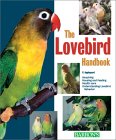Teflon Incidents: Kola and Pumpkin
KOLA BIRD
The owner asked me to post this heartbreaking story to prevent other similar tragedies. It reminds us that using Teflon in a bird house is a very risky proposition. The story brought tears to my eyes because this person is clearly devastated by the loss:
“I just lost my Kola Bird (he was a Yellow Cheek Amazon) to Teflon poisoning. I came home from work and was heating up some water for a cup of hot cocoa. I forgot about the water on the stove. A while later I heard my boy fall off of his perch, but I didn’t hear anything else so I went to investigate. He was sitting on the bottom of the cage with his head kind of bobbing back and forth. In less than five minutes, he was dying in my arms. It was the saddest thing watching my friend of twenty-one years take his last breath in my arms. Please pass this piece on so that maybe another death can be prevented. It hurts real bad.”
PUMPKIN’S STORY
“Over the past year and a half, we’ve lost three pet birds from the use of a Teflon-coated grill plate on the gas cook-top stove in our house. The first incident occurred in May 1992. We lost an 8-year-old Moluccan cockatoo, Pumpkin, while I was cooking. The Moluccan was atop a large exercise gym in the family room, which adjoins the kitchen. A large amount of steaks were grilled on the gas grill portion of the cook top stove. At about 11:30, the Moluccan lost his balance and fell off the exercise gym. He fell about 2 feet. I rushed to him to check for injuries. He was having difficulty holding his balance and maintaining a grip. Approximately 10 minutes later, the bird died. We pulled into the parking lot of Actin Animal Hospital on Portsmouth Blvd as he took his last breath. They performed an autopsy, but the results were inconclusive because we believe the autopsy was performed incorrectly.
The second incident occurred in May 1993, while we were again cooking a large amount of food on the grill of the stove. This time we lost a male peach-faced lovebird. The conditions were nearly the same. I went upstairs about two hours after our guests left and discovered the lovebird dead in his cage. His mate was alright and showed no signs of stress other than the loss of her mate. No autopsy was made.
The third incident happened in mid-July. Again, a large amount of food was being grilled on this stove. A Moluccan that had replacedr the bird we lost was on his perch 6′ off the floor in his large cage in the foyer just off the kitchen. Our son passed by the cage and called to me that the bird was having breathing difficulty. I took him out of the cage, his grip being weak, and put him in a room that had been closed . We moved an air nebulizer already in operation for an Umbrella cockatoo that had aspergillosis into the room and tried to administer air to him. The bird was dead within 15 minutes. We took this bird to Dr. Ruth Ann MacQueen for an autopsy. She performed an observation exam and sent off specimens for detailed tests. Lab tests confirmed her findings: toxic poisoning consistent with exposure to heated Teflon.
We had originally selected this stove for installation in our new house in early 1992 because it did not have any kind of non-stick cooking surfaces. When we first inquired of the store saleslady, she said that the stove did not have any Teflon or similar non-stick coating surfaces. We suspected that Teflon was the culprit when the first bird died, at which time I had gone back to the saleslady and explained all about non-stick surfaces and birds in great detail. I wanted to reconfirm that there was no Teflon anywhere on the stove. Once again, we were told no. A few months later, I wanted to clean the oven and wanted the store to check with the manufacturer about Teflon being on any of the stove parts, even on its screws or washers, or the underside. The cleaning section of the manufacturer’s book., which is the last 2-3 pages at the end of the book, mentioned that the cooking grills were covered with a non-stick surface. The store our builder got the stove from was A&B Propane on Military Highway.
This heartbreaking story comes from Kathy of KG Kat Aviary









